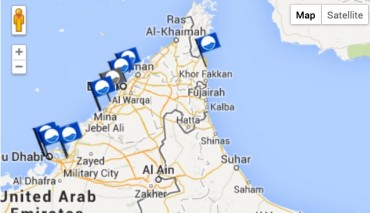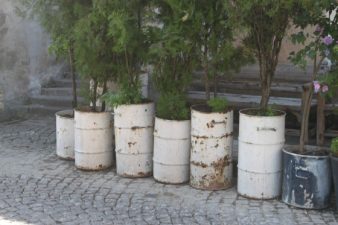 In a well-meaning effort to rid Dubai, Abu Dhabi and other emirates from plastic bags, the United Arab Emirates government has banned the use of non-biodegradable plastic bags. Instead, it will be mandatory for business across all seven emirates to offer their clients the biodegradable variety starting 1 January, 2013. But critics worry that these bags, which are said to break down faster than conventional plastic bags, can’t be recycled.
In a well-meaning effort to rid Dubai, Abu Dhabi and other emirates from plastic bags, the United Arab Emirates government has banned the use of non-biodegradable plastic bags. Instead, it will be mandatory for business across all seven emirates to offer their clients the biodegradable variety starting 1 January, 2013. But critics worry that these bags, which are said to break down faster than conventional plastic bags, can’t be recycled.
The Ministry of Environment and Water announced that the new rules will be enforced starting 2013, though several firms have already made the switch to oxo-biodegradeable bags, according to The National.
This move comes after a succession of stories revealed the deleterious impact that plastic has on the environment. In addition to clogging waterways, hardened chunks of plastic have been found in the bellies of camels living in remote desert areas.
Mohammed Saleh Badri, director general of the Emirates Authority for Standardisation and Metrology (Esma) that is responsible for implementing the new policy told The National that the decision to switch to biodegradable plastic was informed by a series of consultations with experts.
Suppliers have been carefully vetted and certification will be given to only a select few who meet the agency’s stringent guidelines.
But Katharina Goeschl, chief administrative officer for Emirates Environment Technology that runs a plastics recycling plant in Al Ain, told the paper that the chemical properties of the new bags make it impossible to recycle them.
“What will happen is that they will be dumped in landfill sites, and although they will break down into ever smaller pieces they won’t completely degrade,” she said, adding that at least the old bags could be reused.
Daniella Dimitrova Russo, Co-founder and Executive Director, Plastic Pollution Coalition said that bioplastics will not solve the plastic pollution problem since they are still toxic, aren’t recyclable, and they don’t biodegrade as well as most companies have said.
After six months, Esma will review the efficacy of the program, which also aims to address the wider issue of disposable plastics in the United Arab Emirates.
Meanwhile, how about non-plastic, reusable grocery bags?
:: The National
Image of drifting plastic bag, Shutterstock




Dear Sirs,
one of the solution is production of compostable bags what we could to offer from our company MIDAL doo -Novi Sad from Serbia, so that carbon from the earth is returned again to the earth by help of microorganisams.
Best regards
Dalibor
I want to continue using plastic bags, but I would not mind them being biodegradable. As long as it is few month not few minutes.
The impossible solution is to ban the production of all plastic everywhere. But since that can’t be done, and since the human population keeps growing, and since it would take 100 years for Nature to recover from our masses of pollution even if we stopped tomorrow, I guess we may as well get ready to go extinct, since that now seems inevitable.